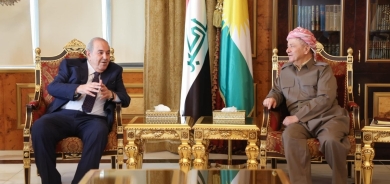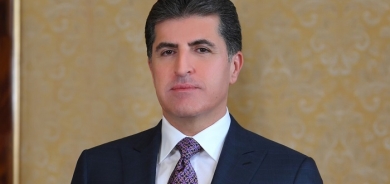Tozun Bahcheli to Gulan: Without a settlement, Turkey will continue to pay a heavy price
April 17, 2013
Exclusive Interviews

Tozun Bahcheli is Professor of Political Science at Kings University College (University of Western Ontario), London, Canada, where he teaches courses in international politics. He is the author of numerous journal articles and of Greek–Turkish Relations Since 1955 (Westview, 1990). During the 1995/96 academic year, Bahcheli was a Senior Fellow at the United States Institute of Peace in Washington, DC. In this interview, Tozun Bahcheli sheds light on the peace process between Turkey and the PKK.Gulan: After almost thirty years of a bloody war between the PKK militia and the Turkish government, both sides are reaching the point that the Kurdish question is a political issue that cannot be resolved by military means. And it is very delighting that both sides are stepping towards holding dialogues. To what extent is a transition from military solution to a peaceful solution important for Turkey and Kurds in Turkey?
Tozun Bahcheli: It has been apparent for many years that the Kurdish issue in Turkey requires a political settlement and that a military solution is unachievable. The people of Turkey (Turks and Kurds alike) have paid a heavy price in blood and treasure for many years, and there is a widespread desire in the country for a peaceful settlement.
Gulan: Since PKK has bases inside Kurdistan region's border and this area has always been a confrontation field between PKK and Turkish military. However, president Barzani has always insisted on choosing a peaceful solution and has said that this issue cannot be resolved by military means. In your opinion, how far can Barzani play a mediating role between PKK and Turkey in the current situation in order to make them reach a peaceful solution?
Tozun Bahcheli: President Massoud Barzani has consistently stated that the Kurdish issue in Turkey requires a peaceful, political solution and that using violence is futile. I do not think that he can play a mediating role between Turkey and the PKK, if by mediation is meant acting in a capacity where he would be actively involved in ideas or concrete suggestions that would form a basis for a settlement between the Turkish government and the PKK. The main reason is that neither Ankara nor the PKK are interested in his mediation. However, in view of the recent improvement in relations between Turkey and Iraqi Kurdistan, Barzani has assumed a larger role vis-a-vis the Kurdish issue than previously and has, in effect, become an encouraging partner of Turkey. He has made clear that he wants the PKK to end its armed struggle in favour of political action. His standing and prestige among Turkish Kurds is a significant though not a decisive factor in the improvement of the political climate in Turkey between Kurds and the Turkish government.
Gulan: Announcing a ceasefire by both PKK and the Turkish military has been considered as an important aspect of a transition towards a peaceful solution. In your view, to what extent is the current ceasefire different from other ceasefires in the past? And, how far are both sides willing to change the ceasefire into a peaceful solution?
Tozun Bahcheli: The current ceasefire in Turkey is not the first such cessation of hostilities by the PKK. Time will tell if the today’s ceasefire will be lasting and will usher a settlement that meets the core demands of Kurds (such as state-supported education in Kurdish and devolution of power to the Kurdish region) and be acceptable to the AKP government of Recep Tayyip Erdogan and a broad cross-section of the Turkish public.
Gulan: In this phase, Turkey needs to resolve Kurdish question. Otherwise Turkey will not be able to re-define itself as a democratic country. In your opinion, to what extent is Turkey concerned about resolving the Kurdish question so as to define itself as a democratic state?
Tozun Bahcheli: I do not think that the desire to enhance democracy in Turkey is a primary motive for Turkey’s new initiative to resolve the Kurdish issue. There are multiple reasons for the initiative to resolve the Kurdish issue: among the primary ones is the realisation that without a settlement, Turkey will continue to pay a heavy price in human lives and the conflict will continue to sap Turkey’s energies and impede its capacity to play a larger role in the region.
Gulan: If the ceasefire is not followed by a peaceful solution, then the problem cannot be resolved. In your view, how can building a peace process become a strategy between both sides and will be stepping towards a peaceful solution?
Tozun Bahcheli: This is a 64 dollar question. Both the Turkish government and the PKK as well as Kurdish nationalists in Turkey appear to have learnt some lessons from the past. Consider the language used by Turkish government members, including Erdogan, in making references to Abdullah Ocalan. He is no longer called the ‘master terrorist’ and instead treated with the respect that is his due as the government’s chief interlocutor.
We are witnessing a delicate process for peace and much could go wrong. Turkish and Kurdish rejectionists will try to derail the process. However, the AKP government appears determined, and so does Ocalan, in achieving a settlement; hence the optimism and the country-wide support for an end to the conflict. According to a survey announced on 28 March 2013 by Besir Atalay, the deputy prime minister responsible for spearheading the new Kurdish initiative, 57.7 % of Turkey’s people support the government’s bid to resolve the Kurdish issue.
Gulan: Resolving the Kurdish question in Turkey requires re-writing of the Turkish constitution and re-defining the right of identification in Turkey. To what extent can Turkey urge re-writing the constitution in order to make the peace process succeed sooner?
Tozun Bahcheli: There is little doubt that the current constitution adopted in 1982 will have to be revised but we do not know exactly what those revisions will be. There is little doubt that the article of the Constitution that states that “Everyone bound to the Turkish state through the bond of citizenship is a Turk”, so offensive to Kurds and other ethnic minorities will be removed. Beyond that, we can expect changes that will enlarge the legal space in which Kurds can seek their collective rights. Some changes, such as those that will permit state-supported Kurdish education, do not necessarily require constitutional changes.
Gulan: If we take a look at the Turkey's steps for resolving Kurdish question in a strategic view, to what extent will it make Turkey a regional super power and get Turkey closer to EU membership?
Tozun Bahcheli: Resolving the Kurdish issue will not necessarily enhance prospects for Turkey’s accession to the EU. The EU Commission has not made the settlement of the Kurdish issue a precondition of Turkey’s accession but it has consistently asked Turkey to improve its human rights record.
There is little doubt that Turkey will become a regional superpower if and when it finds a solution to the Kurdish issue.















